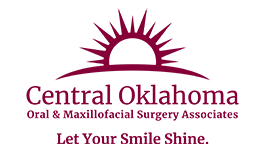25 Nov Can TMJ Disorder Cause Frequent Headaches?
 TMJ disorder is a common affliction that can result in debilitating symptoms and severely impacted oral function. A common side effect of TMJ disorder is frequent headaches. This is often caused by tension along the orofacial region and neck. When conservative treatment options such as restorative dentistry and orthodontics do not alleviate the symptoms of TMJ disorder, jaw surgery might be needed to reposition the alignment of the jaws. Our oral surgeon is an expert in treating developmental and congenital abnormalities that affect the oral cavity and face. Following is some helpful information on TMJ and your treatment options.
TMJ disorder is a common affliction that can result in debilitating symptoms and severely impacted oral function. A common side effect of TMJ disorder is frequent headaches. This is often caused by tension along the orofacial region and neck. When conservative treatment options such as restorative dentistry and orthodontics do not alleviate the symptoms of TMJ disorder, jaw surgery might be needed to reposition the alignment of the jaws. Our oral surgeon is an expert in treating developmental and congenital abnormalities that affect the oral cavity and face. Following is some helpful information on TMJ and your treatment options.
What is TMJ disorder?
TMJ disorder is a condition that involves the dysfunction of the temporomandibular joints. The temporomandibular joints (TMJs) are located on each side of the face and connect the lower mandible to the skull. As complex joints, the TMJs work in tandem with soft tissues like facial muscles and ligaments to facilitate all mouth movement. Without these joints, oral function would be impossible.
If the TMJs are damaged or if a patient has a malocclusion caused by misaligned joints or worn down teeth, the temporomandibular joints can dysfunction. Orthodontic issues and bruxism (the act of clenching and grinding teeth) can lead to the development of TMJ disorder as well.
What are the symptoms of TMJ dysfunction?
Symptoms can vary depending on the severity and underlying cause of TMJ disorder. Common symptoms of this condition include:
- Orofacial pain
- Frequent headaches
- Tooth wear
- Clicking and popping sounds during oral function
- Difficulty speaking and eating
- Earaches
When is jaw surgery necessary?
Sometimes the damaging effects and painful symptoms of TMJ disorder can be improved with restorative dentistry, orthodontics, and the use of oral appliances that relieve tension off the TMJs and jaws. When these treatment protocols do not produce ideal results, a consultation with an oral surgeon might be recommended. During a consultation, our surgeon will use diagnostics to determine if the TMJ is permanently damaged or if the alignment of the jawbones is the underlying cause of this condition.
Call us today at Central Oklahoma Oral & Maxillofacial Surgery Associates to reserve a consultation.
